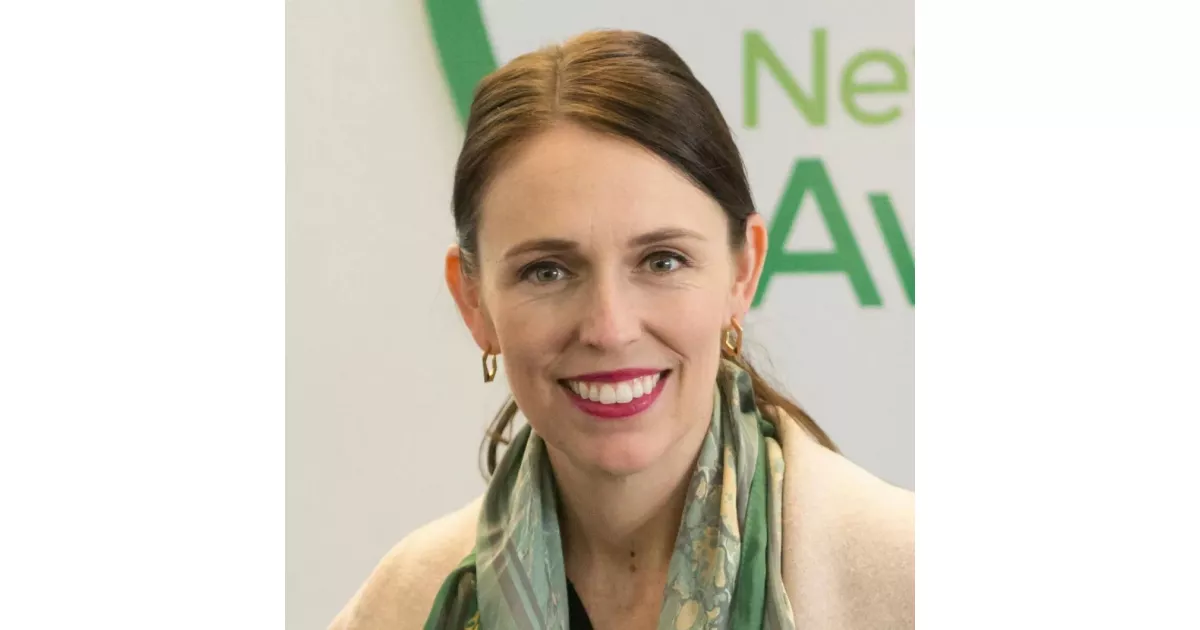How Jacinda Ardern built a successful career. Explore key moments that defined the journey.
Jacinda Ardern served as the 40th Prime Minister of New Zealand and leader of the Labour Party from 2017 to 2023. Before becoming Prime Minister, she was a Member of Parliament, first as a list MP from 2008 to 2017, and then representing the Mount Albert electorate from 2017 to 2023. Her tenure was marked by significant events, including the Christchurch mosque shootings and the COVID-19 pandemic, which shaped her leadership and policy decisions.
1990: Benazir Bhutto gives birth while in office
In 1990, Benazir Bhutto was the first elected head of government to give birth while in office.
1997: Jenny Shipley becomes Prime Minister
In 1997, Jenny Shipley became New Zealand's female prime minister.
1999: Assisted with campaigning for Harry Duynhoven
In 1999, Ardern assisted with campaigning for New Plymouth MP Harry Duynhoven during his re-election campaign.
1999: Helen Clark becomes Prime Minister
In 1999, Helen Clark became New Zealand's female prime minister.
2006: Moved to London and became a senior policy advisor
In 2006, Ardern moved to London, England, where she became a senior policy advisor in the United Kingdom Cabinet Office under prime minister Tony Blair.
January 2008: Elected president of the International Union of Socialist Youth
On 30 January 2008, Ardern was elected president of the International Union of Socialist Youth (IUSY).
2008: Entered Parliament as a list MP
In 2008, Ardern returned from London to campaign full-time and entered Parliament as a list MP.
2008: Elected president of the International Union of Socialist Youth
In 2008, Ardern was elected president of the International Union of Socialist Youth.
2008: Helen Clark leaves office
In 2008, Helen Clark left office as New Zealand's female prime minister.
2008: Elected as MP
In 2008, Jacinda Ardern was elected as a list MP, marking the beginning of her parliamentary career.
2010: End of term as president of the International Union of Socialist Youth
In 2010, Ardern's two-year term as president of the International Union of Socialist Youth ended.
December 2011: Elevated to Shadow Cabinet
On 19 December 2011, Ardern was elevated to the fourth-ranking position in the Shadow Cabinet, becoming a spokesperson for social development.
2011: Contested the seat of Auckland Central
In 2011, Ardern contested the seat of Auckland Central for Labour in the general election but lost to Nikki Kaye.
2013: Ardern votes for Marriage Amendment Act
In 2013, Ardern voted in support of the Marriage (Definition of Marriage) Amendment Act, which legalised same-sex marriage in New Zealand.
2014: Stood again in Auckland Central
In 2014, Ardern stood again in Auckland Central at the general election, finishing second. She was returned to Parliament as Shadow spokesperson for Justice, Children, Small Business, and Arts & Culture.
February 2017: Elected to represent Mount Albert electorate
In February 2017, Ardern was elected to represent the Mount Albert electorate in a by-election.
February 2017: Won Mount Albert by-election
In February 2017, Ardern won a landslide victory in the Mount Albert by-election, gaining 77 percent of votes cast in the preliminary results.
March 2017: Elected as deputy leader of the Labour Party
In March 2017, Ardern was unanimously elected as deputy leader of the Labour Party after the resignation of Annette King.
August 2017: Assumed leadership of the Labour Party
On 1 August 2017, Ardern assumed the position of leader of the Labour Party following the resignation of Andrew Little.
September 2017: Retained Mount Albert electorate seat
At the general election held on 23 September 2017, Ardern retained her Mount Albert electorate seat by a margin of 15,264 votes and Labour increased its vote share.
October 2017: Agreed to form coalition with Labour
On 19 October 2017, New Zealand First leader Winston Peters agreed to form a coalition with Labour, making Ardern the next prime minister.
October 2017: Sworn in as Prime Minister
On 26 October 2017, Ardern was sworn in as the Prime Minister of New Zealand, becoming the world's youngest female head of government at age 37.
November 2017: First Official Overseas Trip to Australia
In November 2017, Jacinda Ardern made her first official overseas trip to Australia and met with Prime Minister Malcolm Turnbull to improve relations between the two countries.
November 2017: Government Continues Participating in Trans-Pacific Partnership Negotiations
In November 2017, Trade and Export Growth Minister David Parker and Jacinda Ardern announced that the government would continue participating in the Trans-Pacific Partnership negotiations.
2017: Ardern Likens Harris' Campaign to Labour's 2017 Campaign
During her speech at the 2024 Democratic National Convention in August, Ardern likened Kamala Harris's campaign to Labour's campaign during the 2017 New Zealand general election.
2017: Ardern Attends APEC Summit in Vietnam
In 2017, Jacinda Ardern attended the APEC summit in Vietnam.
2017: Became Prime Minister
In 2017, Jacinda Ardern became the 40th Prime Minister of New Zealand and leader of the Labour Party.
2017: Ardern Meets with President Trump
In 2017, Jacinda Ardern met briefly with President Trump at the East Asia Summit.
2017: Labour polling similar to first taking over
In 2017, when Jacinda Ardern first took over, the Labour party polling was similar to the last polls of 2022.
January 2018: First Year of Post-Secondary Education Made Free
From 1 January 2018, the first year of post-secondary education was made free.
July 2018: Government's Flagship Families Package Announced
In July 2018, Jacinda Ardern announced the start of her government's Families Package, which included increasing paid parental leave to 26 weeks and introducing a $60 per-week BestStart Payment for low and middle-income families, as well as increasing Family Tax Credit, Orphans Benefit, Accommodation Supplement, and Foster Care Allowance.
2018: Ardern Attends Commonwealth Heads of Government Meeting
In 2018, Jacinda Ardern attended the Commonwealth Heads of Government Meeting in London and raised the issue of Xinjiang internment camps and human-rights abuses against the Uyghur Muslim minority in China.
2018: Jacinda Ardern attracts international media attention
In 2018, Jacinda Ardern attracted significant international media attention during an overseas trip, particularly after delivering a speech at the United Nations in New York. She was contrasted with contemporary world leaders and cast as an "antidote to Trumpism".
2018: Ardern Meets with President Trump
In 2018, Jacinda Ardern met briefly with President Trump during an exclusive party following the UN General Assembly meeting.
2018: Ardern Attends Pacific Islands Forum and UN General Assembly
In 2018, Jacinda Ardern travelled to Nauru for the Pacific Islands Forum and attended the United Nations General Assembly meeting with her infant present, becoming the first female head of government to do so. She also praised the United Nations for its multilateralism and called for attention to climate change and the equality of women.
March 2019: Introduced strict gun laws after Christchurch mosque shootings
In March 2019, following the Christchurch mosque shootings, Ardern reacted by rapidly introducing strict gun laws.
September 2019: Ardern Meets with President Trump
On 24 September 2019, Jacinda Ardern met with United States President Donald Trump on the sidelines of the annual United Nations General Assembly meeting to discuss tourism, the Christchurch mosque shooting, and bilateral trade.
December 2019: Ardern praised for leadership
In December 2019, reflecting on the decade, The Spinoff's editor praised Jacinda Ardern for her leadership and empathy following the Christchurch mosque shootings and the Whakaari / White Island eruption. It was stated that Ardern's strength brought New Zealanders together and inspired people worldwide.
2019: New Zealand Passes Law Banning Semiautomatic Weapons
In 2019, in response to the Christchurch shootings, the New Zealand Parliament passed a law banning most semiautomatic weapons and assault rifles less than one month after the attack.
2019: School Lunches Pilot Programme Roll-Out
In 2019, the government began rolling out a school lunches pilot program to assist in reducing child poverty, eventually supporting 200,000 children in low decile schools.
March 2020: Ardern Votes for Abortion Legislation Act
In March 2020, Jacinda Ardern voted for the Abortion Legislation Act, which amended the law to decriminalise abortion in New Zealand.
June 2020: Meeting with Bill and Melinda Gates
On 17 June 2020, Prime Minister Ardern met with Bill Gates and Melinda Gates via teleconference. Melinda Gates requested Ardern to support a collective approach to a COVID-19 vaccine. Ardern agreed to assist.
October 2020: Led Labour Party to landslide victory
In October 2020, Ardern led the Labour Party to a landslide victory, gaining an overall majority of 65 seats in Parliament.
November 2020: Ardern awarded Harvard University's Gleitsman International Activist Award
On 19 November 2020, Jacinda Ardern was awarded Harvard University's 2020 Gleitsman International Activist Award and contributed the US$150,000 prize money to New Zealanders studying at the university.
December 2020: Travel bubble announcements and vaccine purchases
On 12 December 2020, Ardern and Cook Islands Prime Minister Mark Brown announced a travel bubble between New Zealand and the Cook Islands, set for 2021. On 14 December, Ardern confirmed a travel bubble agreement with Australia for the following year. On 17 December, the government purchased additional vaccines from AstraZeneca and Novavax for New Zealand and its Pacific partners, supplementing existing stocks from Pfizer/BioNTech and Janssen Pharmaceutica.
December 2020: Declaration of climate change emergency and carbon neutral pledge
On 2 December 2020, Jacinda Ardern declared a climate change emergency in New Zealand and pledged that the Government would be carbon neutral by 2025. The public sector would be required to buy only electric or hybrid vehicles, the fleet would be reduced over time by 20 per cent, and all 200 coal-fired boilers in public service buildings would be phased out.
December 2020: Speech at Singapore FinTech Festival
On 9 December 2020, Ardern delivered a virtual speech at the Singapore FinTech Festival, applauding the Digital Economy Partnership Agreement (DEPA) among New Zealand, Chile, and Singapore as "the first important steps" to achieve regulatory alignment to facilitate businesses.
2020: Ardern's government term
From 2020 to 2023, Ardern's government faced scrutiny over its performance and the delivery of promises, influencing perceptions of her leadership.
2020: Labour Party Victory in General Election
In the 2020 general election, Jacinda Ardern led her party to a landslide victory, winning an overall majority in the House of Representatives and retaining the Mount Albert electorate. Ardern attributed the victory to the government's response to the COVID-19 pandemic.
January 2021: Continuation of border closures
On 26 January 2021, Ardern announced that New Zealand's borders would remain closed to most non-citizens and non-residents until New Zealand citizens have been "vaccinated and protected".
February 2021: Commencement of COVID-19 vaccination program
In February 2021, New Zealand's COVID-19 vaccination programme began.
May 2021: Meeting with Australian Prime Minister Scott Morrison
In late May 2021, Ardern hosted Australian Prime Minister Scott Morrison during a state visit at Queenstown. The two heads of governments issued a joint statement affirming bilateral cooperation on COVID-19, bilateral relations, and security issues in the Indo-Pacific. Concerns were raised about the South China Sea dispute and human rights in Hong Kong and Xinjiang.
June 2021: Formal apology for the Dawn Raids
On 14 June 2021, Ardern confirmed that the New Zealand Government would formally apologise for the Dawn Raids, a series of police raids which disproportionately targeted members of the Pasifika diaspora in New Zealand during the 1970s and early 1980s, at the Auckland Town Hall on 26 June 2021.
August 2021: Nationwide lockdown due to Delta variant
In August 2021, following the outbreak of the COVID-19 Delta variant, Jacinda Ardern prompted the government to enact another nationwide lockdown.
October 2021: End of zero-Covid approach
In early October 2021, after one and a half years, New Zealand ended its "Covid zero" strategy, becoming the last country in the world to do so, apart from China.
December 2021: Participation in Summit for Democracy
In early December 2021, Ardern participated in the virtual Summit for Democracy hosted by US President Joe Biden. She discussed bolstering democratic resilience during the COVID-19 pandemic and announced additional financial contributions to support anti-corruption efforts in Pacific countries and media defense funds.
2021: Primary Teachers' Pay Increase Agreed
By 2021, the government agreed to increase primary teachers' pay by 12.8% for beginning teachers and 18.5% for senior teachers without other responsibilities, following industrial action.
2021: Establishment of travel bubble with Cook Islands and Australia
In 2021, Jacinda Ardern announced that travel bubbles would be established between New Zealand and the Cook Islands, and New Zealand and Australia, allowing two-way quarantine-free travel between the two countries.
2021: High domestic popularity
In early 2021, Jacinda Ardern had a high domestic popularity, with 70% of people polled thinking the country was going in the right direction.
May 2022: Trade mission to the United States and Harvard commencement address
In late May 2022, Ardern led a trade and tourism mission to the United States. She urged the Biden Administration to join the CPTPP. She condemned the Robb Elementary School shooting while attending the Late Show with Stephen Colbert and advocated stronger gun control measures. On 27 May, Ardern gave the annual commencement address at Harvard University and was awarded an honorary doctorate in law. On 28 May, Ardern signed a memorandum of understanding with Governor of California Gavin Newsom, formalizing bilateral cooperation between New Zealand and California in climate change mitigation and research.
June 2022: Ardern visits Australian Prime Minister Anthony Albanese
In June 2022, Jacinda Ardern met with Australian Prime Minister Anthony Albanese to discuss issues such as Australia's Section 501 deportation policy, Chinese influence in the Pacific, and climate change. Albanese responded to Ardern's concerns by stating he would explore addressing New Zealand's concerns about the deportation policies' impact on New Zealanders.
June 2022: Ardern Attends NATO Summit
In late June 2022, Ardern attended the NATO Leader Summit. She emphasized New Zealand's commitment to peace and human rights, criticised China for challenging international norms in the South Pacific, and alleged that Russia was conducting a disinformation campaign targeting New Zealand due to its support for Ukraine.
June 2022: Meeting with US President Joe Biden and Vice-president Kamala Harris
On 1 June 2022, Ardern met with US President Joe Biden and Vice-president Kamala Harris to reaffirm bilateral relations between the two countries. A joint statement was issued, reaffirming cooperation on issues including the South China Sea dispute, support for Ukraine, Chinese tensions with Taiwan, and human-rights violations in Xinjiang and Hong Kong.
June 2022: Ardern speaks with Ukrainian President Zelensky
On 30 June 2022, Jacinda Ardern spoke with Ukrainian President Volodymyr Zelensky by telephone. Ardern reassured Zelensky that New Zealand would continue imposing sanctions on Russia, and Zelensky thanked New Zealand for providing aid and requested assistance in rebuilding Ukraine.
August 2022: Ardern visits Samoa for Independence Anniversary
In early August 2022, Ardern led a delegation to Samoa for the 60th anniversary of Samoa's independence. On 2 August, Ardern met with Samoan Prime Minister Fiame Naomi Mata'afa to discuss climate change, economic resilience, COVID-19, health, and Samoan seasonal workers in New Zealand. New Zealand also committed NZ$15 million to support Samoa's climate change mitigation efforts and NZ$12m to rebuild Apia's Savalalo Market.
October 2022: Ardern Visits Scott Base in Antarctica
In late October 2022, Ardern and Gayford visited New Zealand's Antarctica base, Scott Base, to mark its 65th anniversary. The government had committed NZ$344 million to redevelop the base. After Ardern's C-130 Hercules aircraft broke down, she and her entourage returned to Christchurch on an Italian C-130 Hercules aircraft.
November 2022: Ardern Supports Lowering the Voting Age to 16
Following the Supreme Court's ruling in November 2022, Ardern supported lowering the voting age to 16 years and said that the Government would introduce legislation to this effect.
November 2022: Ardern Indicates She Would Seek a Third Term
In November 2022, Ardern had indicated that she would seek a third term as prime minister before announcing her resignation in January 2023.
November 2022: Ardern Attends East Asia Summit in Cambodia
In mid-November 2022, Ardern attended the East Asia Summit in Cambodia where she condemned the Myanmar military regime's execution of political prisoners and called for consensus in response to the Russian invasion of Ukraine. She also met with US President Biden to discuss A2 Milk's efforts to supply infant formula to the United States to address the infant formula milk shortage.
2022: Decline in domestic popularity and approval rating
In 2022, Jacinda Ardern and her policies experienced a significant drop in domestic popularity. Polling on whether the country was heading in the right direction decreased from 70% in early 2021 to 30% by the end of 2022. Labour party polling was similar to when she took office in 2017, and her approval rating fell to 29%.
January 2023: Announced resignation as Labour leader and Prime Minister
In January 2023, Ardern announced her resignation as Labour leader and submitted her resignation as prime minister.
January 2023: Ardern's Final Event and Succession
In January 2023, Ardern's final event as prime minister was a birthday celebration for Tahupōtiki Wiremu Rātana. She called her work as prime minister the "greatest privilege." On 25 January 2023, Chris Hipkins succeeded her as prime minister and leader of the New Zealand Labour Party.
January 2023: Ardern Announces Resignation
On 19 January 2023, Jacinda Ardern announced she would resign as Labour leader and prime minister by 7 February and leave Parliament by the 2023 general election. She cited a desire to spend more time with her family and an inability to commit to another four years.
April 2023: Ardern Appointed Trustee of the Earthshot Prize
On 4 April 2023, Ardern was announced as a trustee of the Earthshot Prize. Prince William selected her for her commitment to sustainable and environmental solutions, stating she was one of the first to encourage him to establish the prize.
2023: Ardern's popularity declines
By early 2023, Jacinda Ardern's popularity in New Zealand had declined significantly, with polls showing her approval rating at 29%. This decline reflected public frustration over unfulfilled promises on issues like housing, child poverty, and social inequality.
2023: Resignation and Academic Appointments
Following her resignation in 2023 and subsequent academic appointments in the United States, some New Zealanders expressed concern over what they viewed as a withdrawal from domestic political accountability.
2023: Ardern accepts Fellowships at Harvard Kennedy School
In 2023, Ardern accepted dual fellowships at the Harvard Kennedy School for a semester beginning in fall 2023, to serve as the 2023 Angelopoulos Global Public Leaders Fellow and as a Hauser Leader at the Center for Public Leadership. She will also work with Harvard's Berkman Klein Center for Internet & Society as its first Knight Tech Governance Leadership Fellow, focusing on the study of online extremism.
2023: Reactions to Ardern's Resignation
In 2023, Ardern's resignation prompted mixed reactions from across the New Zealand political establishment, with expressions of gratitude and disagreement from various party leaders, and criticisms over unfulfilled promises during the 2020-2023 parliamentary term.
2023: Resigned as Prime Minister
In 2023, Jacinda Ardern resigned as the Prime Minister of New Zealand.
June 2024: Ardern Leads Field Fellowship Programme
In mid-June 2024, the Center for American Progress Active Fund announced that Ardern would be leading the Field Fellowship programme for training new "emerging leaders".
August 2024: Ardern Endorses Kamala Harris's 2024 Presidential Campaign
On 21 August 2024, Ardern endorsed US Vice President Kamala Harris's 2024 presidential campaign and spoke at the Global Progress Action Luncheon during the 2024 Democratic National Convention.
January 2025: Announcement of Ardern's Memoir
On 21 January 2025, Crown Publishing Group announced that Ardern's memoir, titled A Different Kind of Power, would be released on 3 June. Ardern chose not to tour in or near New Zealand to promote her memoir due to negative public sentiment. Instead, Ardern plans a nine-night promotional tour across the United Kingdom and the United States for her book which will detail her political career and leadership philosophy.
2025: Government carbon neutral target
By 2025, Jacinda Ardern pledged that the government would be carbon neutral.
Mentioned in this timeline
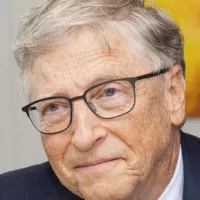
Bill Gates an American businessman and philanthropist revolutionized personal computing...

Donald John Trump is an American politician media personality and...
Ukraine is a country in Eastern Europe the second-largest on...

Elizabeth II reigned as Queen of the United Kingdom and...

Joe Biden is an American politician who served as the...
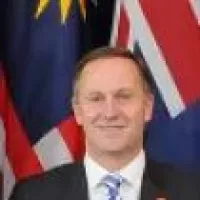
The Trans-Pacific Partnership TPP was a proposed trade agreement among...
Trending

46 minutes ago Six Flags to Open World's Tallest Vertical-Loop Roller Coaster in Texas by 2026

46 minutes ago Bill Nye Visiting Lehigh Valley, Winter Weather, ICE Protest in Pennsylvania.
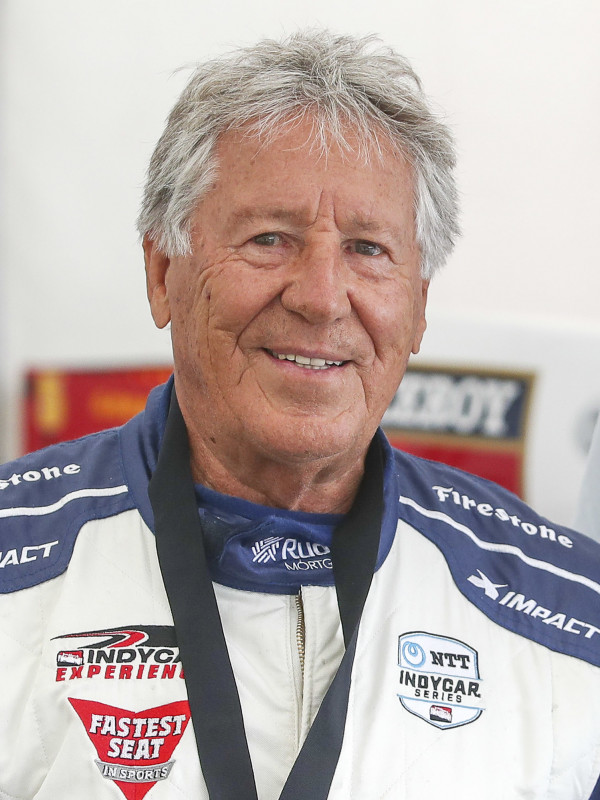
47 minutes ago Cadillac Names First F1 Car After Mario Andretti, Honoring Racing Icon's Legacy

2 hours ago Kenya Moore Denies Hair Salon Rent Issues Amidst 'RHOA' Alum Rumors
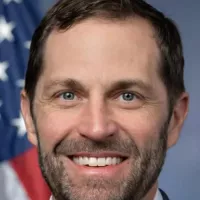
2 hours ago Rep. Jason Crow Campaigns in Wisconsin and Against Van Orden; Trump's Iran Attack
3 hours ago Burnley Mounts Incredible Comeback from 3-0 to Draw with Brentford in Thrilling Match.
Popular

Jesse Jackson is an American civil rights activist politician and...

Hillary Diane Rodham Clinton is a prominent American politician lawyer...

XXXTentacion born Jahseh Dwayne Ricardo Onfroy was a controversial yet...

Michael Joseph Jackson the King of Pop was a highly...

Barack Obama the th U S President - was the...

Kashyap Pramod Patel is an American lawyer who became the...
